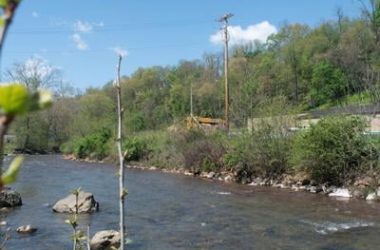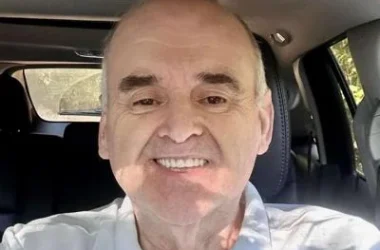By JIM WORKMAN
For The West Virginia Press Association

Photo by JIM WORKMAN/The West Virginia Press Association
CHARLESTON, W.Va. — West Virginia Legislative interim meetings for May started Sunday afternoon at the State Capitol with a meeting of the Joint Commission on Economic Development and the Legislative Oversight Commission on Workforce Investment for Economic Development.
Valerie V. Comer, deputy director of federal programs for Workforce West Virginia, presented the commission with information on Workforce efforts in West Virginia.
Sen. Michael Romano, D-Harrison, asked Workforce West Virginia to provide more detailed, results-oriented statistics to show how successful, or unsuccessful, its programs have been to certain industries and regions for an upcoming meeting.
Romano said that the aerospace industry is robust in his region, yet still has difficulties identifying West Virginians as permanent employees. Romano reported hearing from one employer in Harrison County that is currently employing about 250 out-of-state workers on a contract basis until qualified, hirable state citizens can be found.
“They’re desperate for workers,” Romano added. “With expansion plans in the coming years, we’re talking about hundreds (more) workers (needed). It’s a real opportunity, industrial jobs, non-minimum wage jobs.”
He pointed to a program at Pierpont Community and Technical College in Clarksburg that trains workers for a specific skill in sheet metals, specific to the aerospace industry there.
“It’s everyone’s dream to graduate on Friday and go to work on Monday,” Romano said, asking Comer if a Workforce West Virginia aids the school in training for the industry.
Comer said regularly scheduled job fairs are held between Pierpont and the Region 6 Workforce Investment Board. “We work closely with them,” she said, adding that tuition assistance is often provided.
Delegate John Shott, R-Mercer said one of the areas the state needs to improve is making its workforce easier to enter for those who may have a felony on their record, but have completed a certified addiction recovery program.
“We have a large population, unfortunately, that fall in that category,” said Shott, adding there is a need to ease people with a challenged background or a felony record back into the workforce, maybe with incentives given to employers for hiring them.
Comer answered that efforts are underway, including grants for state community and technical colleges for training. “We work with corrections; those released on parole have to register with our services,” she said. “We try to get them back into a job, helping them upgrade their skills.”
There is an effort toward incentivizing employers as well, Comer said.
“We are working with other agencies too, because it is an issue,” she said. “There are employers who will hire them, but there’s still a long way to go. We are looking at grant opportunities and having those discussions, reaching out to (potential) employers.”
Comer also updated the committee on services for employers including a Federal Bonding program, Work Opportunity Tax Credits, Veterans services, the federal Workforce Innovation and Opportunity Act, National Dislocated Worker Grants and the Workforce Investment Interagency Collaborative team.
— — —
Procedural rules governing the Joint Commission on Economic Development and the Legislative Oversight Commission on Workforce Investment for Economic Development for the 2018-2019 interim period passed unanimously in a vote near the conclusion of the meeting.
The rules cover:
- Quorum – a quorum of the committee and any subcommittees created from the Committee shall consist of not less than 51 percent of the members of the senate and 51 percent of the members of the House of Delegate. IN the absence of a quorum, no procedural or substantive action may be taken by the Committee or any subcommittee with regard to proposed legislation: Provided, that the absence of a quorum shall not prohibit consideration and discussion of proposed legislation before the Committee, or the presentation by interested citizens of their views regarding such legislation. The absence of a quorum shall not prohibit a majority of the members present from directing staff to prepare proposed drafts or to conduct research concerning proposed legislation for presentation at a future meeting of the subcommittee.
- Voting – Except as provide n paragraph on above, action proposed by the Committee or a subcommittee thereof requires a majority vote of the quorum present.
- Minutes – Minutes of all the meetings of the Committee shall be prepared by staff for approval of the Committee at a subsequent meeting. For his or her convenience in preparing minutes, the responsible staff person may electronically record the meeting for clerical use. However, once the minutes for a particular meeting have been approved, they shall stand as the sole record of the proceedings.
- Applicability of procedural rules of the Senates and House of Delegates– To the extent that they are not inconsistent, the procedural rules of the Senates and House of Delegates shall apply to all meetings of the Committee and to all subcommittee meetings. In the event of an inconsistency between such rules, the Co-Chairs of the Committee or subcommittee who is chairing the particular meeting shall apply the rule or rules of the house of which he or she is a member.






